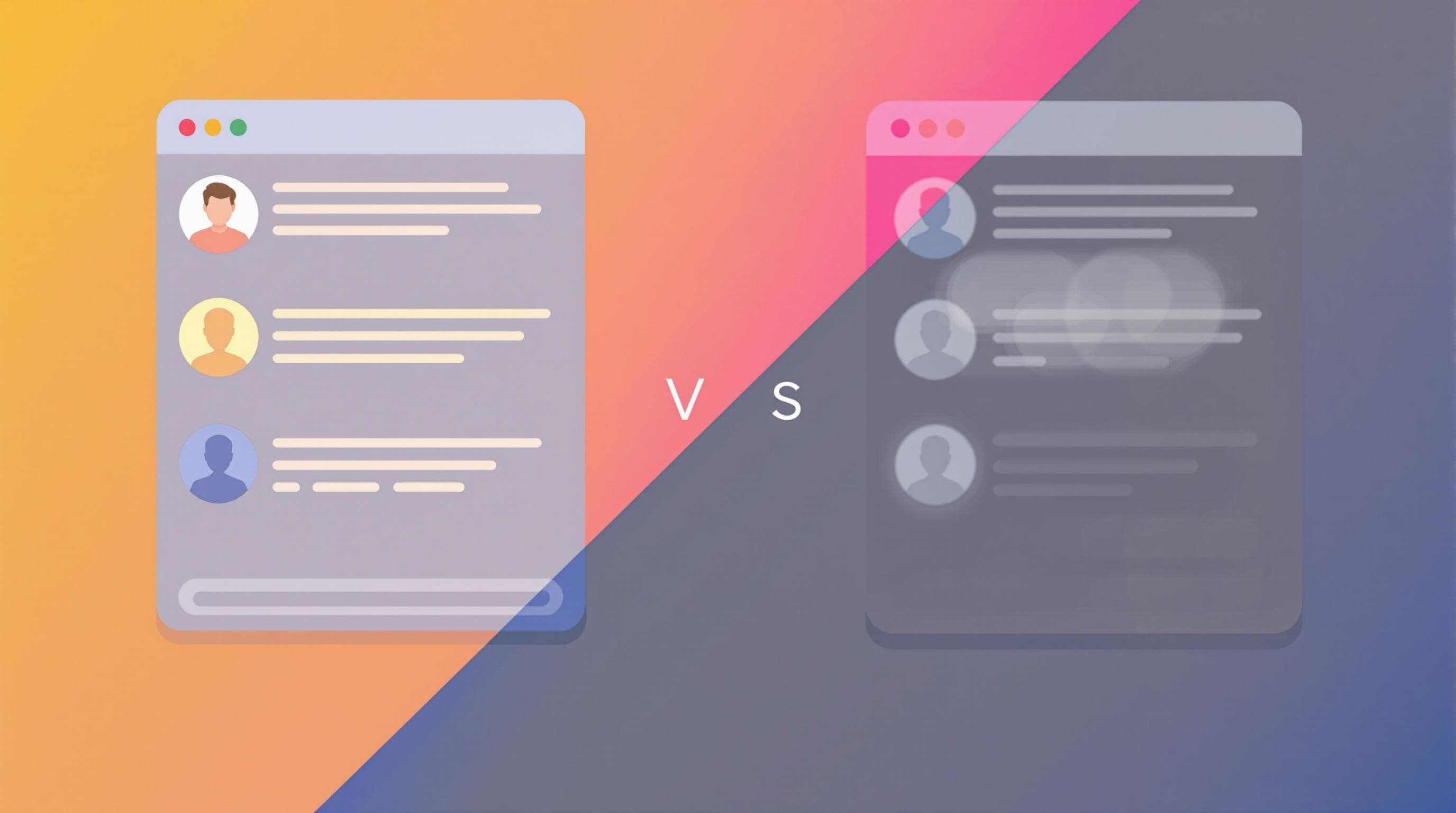Ignoring negative comments on your Facebook page might seem like the easy way out. Who wants to deal with negativity, right? But sweeping complaints under the digital rug, whether by ignoring or actively hiding comments on Facebook, carries significant, often unseen, consequences that can quietly sabotage your brand's reputation and bottom line.
In today's hyper-connected world, social media platforms like Facebook are often the first place potential customers look for social proof and real-world feedback. What they find in your comment section – or perhaps more importantly, what they don't find in terms of responses – speaks volumes about your business.
The temptation to delete, hide, or simply ignore critical comments is understandable, but it's a short-sighted strategy. Failing to address negativity doesn't make it disappear; it often amplifies it, signaling to your audience that you don't value feedback or customer care.
The Ripple Effect of Unanswered Negativity
Think of each ignored negative comment as a small crack in your brand's foundation. One comment might seem insignificant, but the cumulative effect can be devastating. Studies show that a vast majority of consumers read online reviews and comments before making a purchase decision. Unanswered complaints can quickly poison the well. Similarly, hiding comments on Facebook, while removing them from public view, prevents transparent resolution and can make audiences suspicious about what else is being concealed.
When potential customers see legitimate concerns or complaints met with silence (or suspect comments are being hidden), they infer that the business is unresponsive, uncaring, or perhaps even confirming the validity of the complaint. This erodes trust, a crucial element in any customer relationship. Existing loyal customers might also feel slighted if their feedback is ignored or hidden, potentially leading them to competitors.
Ignoring or hiding online complaints is like letting a small fire smolder – eventually, it can engulf your entire reputation.
Quantifying the "Hidden Costs"
The costs associated with ignoring or hiding comments on Facebook aren't always line items on a balance sheet, but they are undeniably real.
Lost Sales and Customer Churn
This is the most direct cost. A potential customer deterred by unanswered or suspiciously absent negative comments represents lost revenue. Similarly, an existing customer who leaves due to feeling ignored contributes to churn, which is often more expensive than acquisition.
Damaged Brand Reputation
Negative comments, especially when left unaddressed or seemingly hidden, contribute to a poor online reputation. Rebuilding a tarnished brand image takes significant time, effort, and resources – far more than addressing comments proactively and transparently.
Decreased Engagement and Reach
Social media algorithms often favor posts with active engagement. While negative comments count as engagement, a lack of response from the brand, or the perception of censorship through hiding comments on Facebook, can signal low quality or unresponsiveness, potentially reducing the overall reach of your content. Healthy, two-way conversations are key.
Wasted Marketing Spend
What's the point of spending money on Facebook Ads to attract customers if they land on your page only to be put off by a comment section filled with ignored complaints or suspect that negative feedback is being hidden? It undermines your marketing investment.
Strategies for Effective Comment Management
Avoiding these hidden costs requires a proactive approach to managing comments, both positive and negative, rather than resorting to ignoring or hiding them.
- Timeliness is Key: Aim to respond to comments, especially negative ones, as quickly as possible. A prompt response shows you're listening and care. Even a simple acknowledgment buys you time for a more detailed follow-up.
- Acknowledge and Empathize: Start by acknowledging the user's frustration or issue. Show empathy, even if you don't agree with their entire assessment. Phrases like "We're sorry to hear you had this experience" can go a long way.
- Take it Offline (When Necessary): For complex issues or those requiring personal information, politely ask the user to message you directly or provide a customer service contact. This protects their privacy and allows for a more focused resolution.
- Turn Negatives into Positives: A well-handled complaint can sometimes turn an unhappy customer into a loyal advocate. By resolving their issue effectively and publicly (where appropriate), you demonstrate excellent customer service to everyone watching.
- Maintain Professionalism: Always respond politely and professionally, even if the commenter is rude. Avoid getting drawn into arguments. Stick to the facts and focus on resolution.
Automating Your Response Strategy
Manually monitoring and responding to every comment, especially for businesses with active pages or multiple accounts, can be incredibly time-consuming and resource-intensive. This is where technology can provide a significant advantage over simply hiding comments on Facebook when overwhelmed.
Keeping up with the sheer volume, ensuring timely responses, and maintaining a consistent brand voice across all interactions presents a major challenge. For e-commerce brands dealing with product inquiries, performance marketers managing ad comments, SMBs juggling multiple roles, and agencies handling client accounts, the task can quickly become overwhelming.
This is where platforms like ReplyZen.ai come into play. Designed specifically for managing social media engagement on Facebook and Instagram, ReplyZen.ai uses AI to help businesses automate and streamline their comment management. It can automatically moderate comments, filter spam, and even generate context-aware responses based on your predefined guidelines.
Instead of manually sifting through hundreds of comments or resorting to hiding them, ReplyZen.ai's AI can identify urgent issues, answer common questions, and flag comments needing a personalized human touch. This frees up your team to focus on high-value interactions and strategic tasks, ensuring no negative comment slips through the cracks and mitigating those hidden costs effectively.
Conclusion
Negative comments on Facebook aren't just noise; they are valuable feedback and a critical touchpoint in your customer journey. Ignoring or hiding comments on Facebook carries hidden costs that impact sales, reputation, and growth. By implementing a proactive management strategy, you can mitigate risks and even turn negative situations into opportunities.
While manual management is crucial, leveraging AI tools can significantly enhance efficiency and effectiveness. Platforms like ReplyZen.ai offer a powerful way for businesses to manage Facebook and Instagram comments at scale, ensuring timely, appropriate responses that protect brand reputation and foster positive customer relationships. Don't let ignored or hidden comments undermine your success – take control of the conversation.



